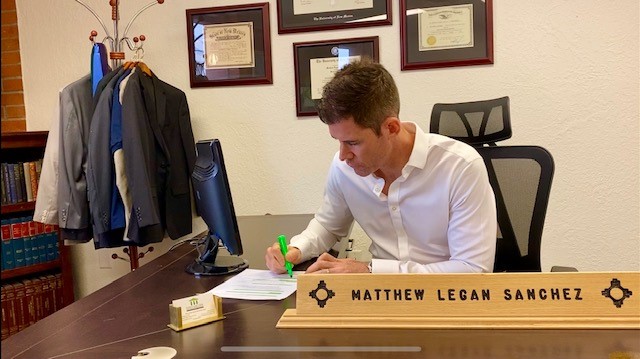
Finding Hidden Income and Assets in Child Custody and Divorce Cases
FINDING HIDDEN ASSETS DURING DIVORCE CASE IN ALBUQUERQUE, NEW MEXICO
Nothing sparks positive, springtime emotions like childhood memories of “Hide and Seek.” Unfortunately every yin has its yang. On the opposite end of the feel good spectrum – nothing bangs the gong of fear and loathing like falling into a divorce or custody case against a former partner that is hiding money and/or assets, forcing one to spend precious time and money seeking the truth.
The game of a hidden asset search can be frustrating, time consuming, and expensive. Here are the common ways that individuals attempt to hide, undervalue, or misrepresent assets/income.
Hiding Assets to Reduce Child Support in New Mexico
The time that each parent spends with the child, and each parent’s Gross Monthly Income are the twin towers that ultimately affect one’s corresponding child support obligation. The statutory definition of “gross monthly income” is expansive and covers income such as salaries, wages, tips, commissions, bonuses, dividends, severance pay, pensions, interest, trust income, social security benefits, unemployment insurance, and so on.
Hiding Income
Commonly one party attempts to hide/understate their income in the following manner: (1) Failing to report income, (2) Purposefully reducing income through unemployment or underemployment to reduce child support.
Proving that the other parent is failing to report income can be a tedious and time-consuming endeavor. Often one parent claims that the other parent is failing to report their full income.
Commonly the claim surrounds the other parent making money “under the table,” which is not reported on one’s W-2 or taxes. Ultimately the parent that raises the claim of undocumented income has the burden to prove that the other parent is hiding income. In this scenario the parent claiming hidden income generally uses the discovery process — such as interrogatories and request for production of documents –– to ferret out the truth.
The discovery process provides both parties with the opportunity to review bank records, taxes, pay-stubs and other relevant information. The process also provides both parties with the right to conduct a deposition, which is a formal interview that is held under the penalty of perjury. Although effective, the discovery process is one of the more time-consuming, tedious, and expensive aspects of litigation.
Additionally, there are no guarantees that the process will uncover tangible and admissible evidence that satisfies one’s burden of proof. In situations where the discovery process fails to uncover proof of hidden income, one will find it exceedingly difficult to convince the presiding judge that the other party is hiding money.
Unemployment
In situations where a parent is unemployed, New Mexico courts have the ability to impute (i.e. calculate) the unemployed parent’s income at minimum wage. Generally the court will impute a parent’s income to that of minimum wage – provided that the parent is not acting as the primary caregiver of a child that is under the age of six, or disabled. In Albuquerque, minimum wage is currently $1,517.
Underemployment
New Mexico child support guidelines offer little guidance for courts to determine when a parent is purposefully reducing one’s income with the aim of reducing the corresponding child support obligation. Because of this lack of statutory guidance — and similar to many other family law issues — one’s assigned judge has “wide discretion” to decide if a parent is failing to generate income at one’s full potential. In other words, because New Mexico law is unclear on the issue of underemployment, one’s assigned judge holds immense power to decide if the other parent is reducing their income with the goal of lowering child support.
In order to discourage parents from dodging child support, New Mexico courts can determine and then impute one’s potential income to an underemployed parent. This determination and imputation is intended to discourage parents from dodging the obligation to support one’s children. It also goads the underemployed parent into full employment by attaching an unpleasant consequence (i.e. a mounting child support payment that is based on a higher income than one is actually earning).
When determining whether to impute income for underemployment, judges consider the credibility of the allegedly underemployed parent and decide whether that parent has acted in “good faith” to earn and preserve as much money as reasonably expected under the circumstances.
Hiding Assets to Reduce Community Property in Divorce
New Mexico is a community property state. This means that other than gifts, personal injury settlements, and inheritances – generally speaking – any asset that is accumulated during the marriage will be considered community property and split 50-50 upon divorce.
In some cases one party to the marriage refuses to play by the rules and attempts to hide community property. Usually this party is the majority earner that refuses to provide the other party with his/her full slice of the community pie.
Possibly one party places community money into a separate account, transfers property to another person’s name, or sells property for an unreasonably low price with the mutual agreement of getting the property back.
Similar to child support discussed above, there are several paths that one can take to determine if the other party is hiding assets. The discovery process is the most common tool that is routinely used (i.e. interrogatories and request for production of documents).
Either party can also subpoena records, or request for a deposition to take place. Although uncommon, at times one side will hire a private investigator to conduct a thorough investigation of the other party’s financial actions, assets, and accounts.
Red flags that possibly signal an intent to hide assets include money being transferred from one account to another, large purchases, unaccounted spikes in debt, sudden decreases in salary, etc. These actions could illustrate that one is playing a shell game to protect and camouflage one’s assets.
Similar to financial issues surrounding child support, it is not enough to suspect that the other party is hiding assets. One must also find admissible evidence that can be introduced in a court of law – an act that can transform a routine divorce into an expensive exercise in discovery, depositions, and investigations to uncover potential assets.
(505) SANCHEZ IS HERE TO HELP WITH FINDING HIDDEN INCOME AND ASSETS IN CHILD CUSTODY AND DIVORCE CASES IN ALBUQUERQUE, NEW MEXICO
Are you having problems finding hidden income and assets with your child custody or divorce cases in Albuquerque, New Mexico? Finding hidden income and assets in child custody and divorce cases often requires the experienced hand and knowledge that comes with years of courtroom practice. Matthew Legan Sanchez has the experience needed to handle your unique case. Sanchez can be reached by calling (505) SANCHEZ.

How to find money your spouse has hidden for New Mexico divorce







